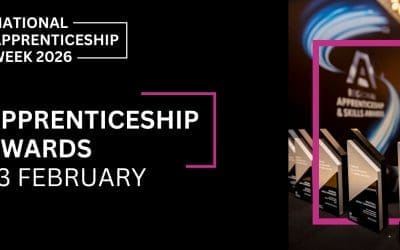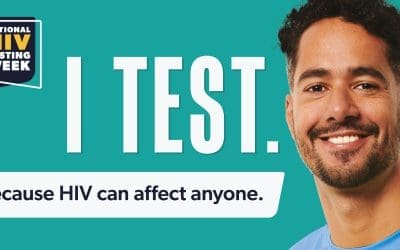As part of National Apprenticeships Week 2021, the Apprenticeships team have gathered together some interesting myth-busting facts about apprenticeships and what it’s like to be an apprentice.
Myth: Apprenticeships are only for young people
Myth Buster: There is no upper age limit for apprenticeship training. We have apprentices ranging from age 17 to 76 currently completing apprenticeship programmes within the GHC Trust. Anyone aged 16 and over can enrol onto an apprenticeship.
Myth: Apprentices are poorly paid
Myth Buster: The National Apprenticeship Salary is currently £4.15 per hour, however GHC pay newly recruited entry level (Level 2 or 3) apprentices £5.18 an hour for the first 12 months and then National Minimum Wage for their age category. However, some apprenticeship programmes such as the Trainee Nursing Associate pay at band 3.
If you are already employed by the Trust and start an apprenticeship programme there will be no changes to your contract or salary.
You will be earning a wage and receive your training at no cost to yourself.
Myth: I can’t do an apprenticeship and work full time
Myth Buster: Apprenticeship are a vocational way to train and are completed alongside your current job role. No need to take career breaks or leave employment to train. Apprenticeships are also fully funded so won’t cost you a penny! You will need to complete some of the academic work in your own time.
Myth: Apprenticeships are only for the construction or trade industry
Myth Buster: This is no longer the case, and hasn’t been for a while. There is a wide breadth of apprenticeship training available across all sectors of our workforce e.g. Finance, I.T, Business Administration, Customer Service, Management, Dental, HCA’s, Nursing Associates, Occupational Therapists and Physios to name a few! New apprenticeship standards are in development all the time.
Myth: Apprenticeships don’t offer the same job opportunities as degrees
Myth Buster: There are numerous apprenticeship pathways available which lead to degree level roles. Apprenticeships can be just as valuable and open up as many opportunities as a degree. Apprenticeships are available from Level 2 (GCSE) up to Level 7 (Master’s Degree). GHC currently support 24 different types of apprenticeships.
Myth: Apprenticeships are for the less academic and people who don’t do well at school
Myth Buster: Absolutely not! Apprenticeships can be just as challenging and rewarding as traditional GCSE, A-Level and Degree study programmes. We currently have over 150 apprentices undertaking apprenticeship training from Level 2 (GCSE) right up to Level 7 (Master Degree) level.
Myth: Apprenticeships don’t lead to good qualifications
Myth Buster: There are clear progression routes for apprentices to enable you to attain degrees through the apprenticeship programme.
Myth: Apprenticeships are only for new staff to the business – existing staff don’t qualify
Myth Buster: A majority of our apprentices are staff who are already employed by the Trust. They are making the most of funded apprenticeship training to upskill, pursue promotion or a change of career within the Trust.
Myth: Apprentices only do menial or low skilled work – apprenticeships are not proper jobs
Myth Buster: Apprentices follow clear training criteria and competencies which involves key tasks and play an important role within their teams. Apprentices start effectively contributing to their job role from day one.
Myth: Apprenticeships are low-quality training options
Myth Buster: The new Apprenticeship Standards launched in 2017 have been designed to improve the quality of apprenticeships and many include professional qualifications e.g. We have 7 staff who are undertaking Master Level Degree apprenticeships and 56 who are on Chartered Management Institute (CMI) apprenticeships.




